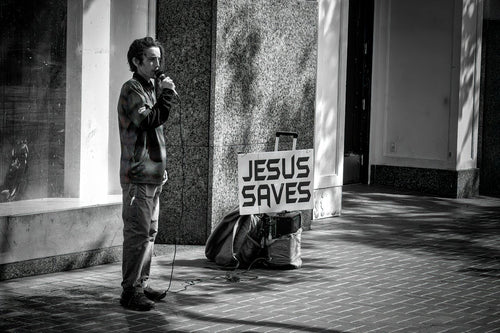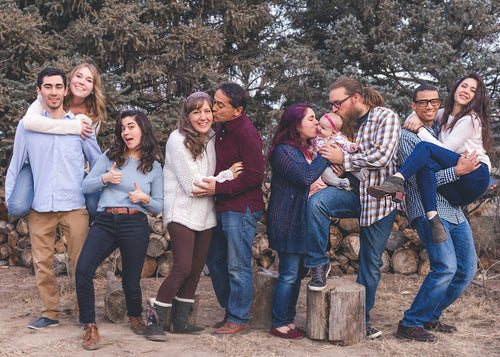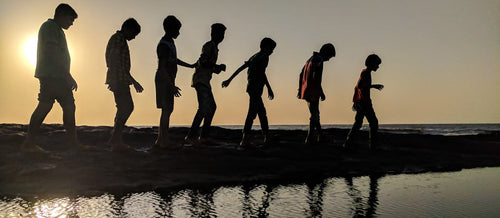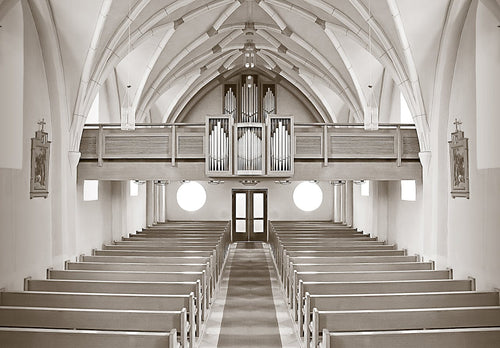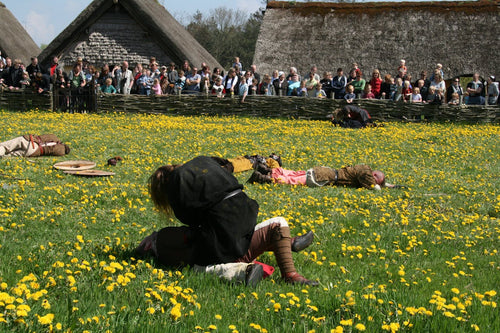
The Prodigal Son and Jesus: A Story of Repentance, Grace, and Redemption
Matthew BellShare
One of the most powerful and well-known parables Jesus ever told is the story of the Prodigal Son. Found in Luke 15, this parable is more than just a lesson in family or morality. It’s a vivid, emotional picture of God’s mercy, our sinful nature, and the redemptive power of Jesus Christ.
Too often, this story is seen as a standalone narrative. But when we look closely, we see that it directly mirrors the heart of the Gospel—the love of the Father, the sacrifice of the Son, and the invitation to come home.
Let’s take a journey through this parable using the King James Version (KJV) of the Bible and uncover how every line points straight to Jesus and His redemptive love.
The Son's Rebellion: A Picture of Us All
Luke 15:12 (KJV): “And the younger of them said to his father, Father, give me the portion of goods that falleth to me. And he divided unto them his living.”
The younger son’s demand for his inheritance before his father’s death was not just bold—it was disrespectful. It symbolized rebellion. In essence, he was saying, “I want your blessings, but not your presence.”
This is the story of humanity. We often want God’s gifts—life, love, opportunity—but not His Lordship. Like the prodigal son, we want to live life on our terms, chasing pleasure and self-fulfillment without submitting to the Father.
This rebellion is sin. And just like the son eventually realized, it always leads us to a place of emptiness.
The Fall and Brokenness
Luke 15:14-16 (KJV): “And when he had spent all, there arose a mighty famine in that land; and he began to be in want... And he would fain have filled his belly with the husks that the swine did eat: and no man gave unto him.”
The son reaches rock bottom. He is feeding pigs—a job detestable for a Jew—and is so desperate that he longs to eat their food. This is a symbol of our spiritual depravity. Sin promises freedom, but always leads to bondage. The far country looked appealing, but it ended in hunger, filth, and isolation.
This mirrors the human condition apart from Jesus. We try everything—money, relationships, success—but still find ourselves spiritually starving.
The Turning Point: Repentance Begins
Luke 15:17-18 (KJV): “And when he came to himself, he said... I will arise and go to my father, and will say unto him, Father, I have sinned against heaven, and before thee.”
The son doesn’t blame anyone else. He takes full responsibility. This is what true repentance looks like—a humble return to the Father, not expecting reward, just hoping for mercy.
This is where Jesus steps in. Without Him, there’s no bridge back to the Father. But through Christ, repentance is not only possible, it's welcomed.
The Father’s Radical Love: A Picture of God Through Jesus
Luke 15:20 (KJV): “But when he was yet a great way off, his father saw him, and had compassion, and ran, and fell on his neck, and kissed him.”
This is one of the most beautiful verses in Scripture. The father didn’t wait for an apology. He saw his son a great way off, ran to him, and embraced him. This is exactly what God does through Jesus.
Jesus said in John 14:6 (KJV):
“I am the way, the truth, and the life: no man cometh unto the Father, but by me.”
The Father runs to us because Jesus made the way back possible through His death and resurrection. The kiss, the robe, the ring—all signs of full restoration—represent our forgiveness and new identity in Christ.
Restoration, Not Just Forgiveness
Luke 15:22-24 (KJV): “But the father said to his servants, Bring forth the best robe, and put it on him... and let us eat, and be merry: For this my son was dead, and is alive again; he was lost, and is found.”
God doesn’t just forgive; He restores. He gives us new robes of righteousness (Isaiah 61:10), seats us at His table, and rejoices over us.
This is the heart of the Gospel. Jesus doesn’t just save us from hell—He brings us back into relationship with the Father, as sons and daughters.
The Older Brother: A Warning Against Self-Righteousness
Luke 15:28-30 (KJV): “And he was angry, and would not go in... Lo, these many years do I serve thee... yet thou never gavest me a kid, that I might make merry with my friends.”
The older brother represents the religious spirit—those who believe they earn God’s love through works. But salvation isn’t earned. It’s a gift. The older brother missed the joy of grace because he trusted in performance, not in relationship.
Jesus constantly rebuked the Pharisees for this very thing. Salvation is for those who know they need mercy, not those who think they’ve earned it.
Conclusion: The Prodigal Son Is the Gospel Story
The parable of the Prodigal Son is not just a moral lesson—it’s a story of Jesus, the cross, repentance, and the Father’s unending love. It reminds us that:
- We have all rebelled and gone astray
- Life without the Father leads to spiritual famine
- Repentance opens the door to restoration
- God runs to meet us, through Jesus
- Salvation is about grace, not works
If you’ve wandered far, Jesus made the way back home. If you’ve tried religion and performance, remember that God wants your heart, not just your service.
All verses were quoted from the King James Version (KJV) of the Bible.
If this helped you, share it with a friend who could benefit from this message today.




